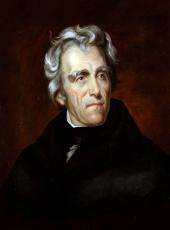To the Senate of the United States:
I transmit for the consideration and action of the Senate a treaty concluded with the Cherokees for the cession of their lands east of the Mississippi River.
It is known to the Senate that for some years great difficulties have been experienced in the relations of that tribe. Without further allusion to these than as they furnish strong inducements to a final settlement of all the questions involved in our intercourse with these Indians, it is obvious from the existing state of things that they can not continue in their present position with any hope of ultimate prosperity. I have been, therefore, desirous that a just and satisfactory arrangement should be made for their removal, and propositions to that effect upon a liberal scale have been repeatedly made to them. These have until now been rejected, and their rejection, I have been induced to believe, has been owing more to the ascendency acquired by individuals who are unwilling to go than to the deliberative opinion of a majority of the Cherokee people. Some years since a form of government was established among them, but since the extension of the laws of Georgia and Alabama over them this government can have no binding effect upon a great majority of them. Its obligation is also denied by many of them in consequence of the continuance of certain persons in power contrary to the principles of their fundamental articles of association. A delegation from the persons claiming to hold their authority under the former existing state of things is in this city, and have communicated with the War Department on the subject of their situation and removal. They deny the right of the persons who have negotiated this treaty to perform such an act, and have remonstrated against it. Copies of their communications are herewith transmitted.
The delegation who have signed the present treaty have produced an authority from William Hicks, designating himself as principal chief, and others, signing the same in an official capacity. It is understood from the report of Major Currie, the enrolling agent, that public notice was given to all persons desirous of emigrating to attend upon a particular day and place in order to appoint representatives to communicate with the Government and to arrange the terms of cession and removal. In conformity with this notice a meeting was held and the authority herein referred to was the result.
In consequence of this application John H. Eaton was appointed to meet and confer with them and to report their views to the War Department. These are embodied in the treaty which is presented to your consideration.
Under these circumstances I submit the matter to the decision of the Senate. The practice of the Government has not been very strict on the subject of the authority of the persons negotiating treaties on the part of the Indians. Sometimes it has been done by persons representing the tribe and sometimes by the individuals composing it. I am not aware that a case similar in its features to the present has ever before required the action of the Government. But, independently of the considerations which so forcibly urge a settlement of this matter, no injustice can be done to the Indians by the ratification of this treaty. It is expressly provided that it will not be binding upon them till a majority has assented to its stipulations. When that assent is given no one can justly deny its obligation.
The Cherokees east of the Mississippi occupy a portion of the territories of four States, to wit, Georgia, North Carolina, Tennessee, and Alabama. The treaty provides that the communities inhabiting those divisions shall each be considered as acting for themselves independently of the others. We have frequently in our intercourse with the Indians treated with different portions of the same tribe as separate communities. Nor is there any injustice in this as long as they are separated into divisions without any very strong bond of union, and frequently with different interests and views. By requiring the assent of a majority to any act which will bind them we insure the preservation of a principle which will afford adequate security to their rights.
ANDREW JACKSON
Andrew Jackson, Special Message Online by Gerhard Peters and John T. Woolley, The American Presidency Project https://www.presidency.ucsb.edu/node/201124

